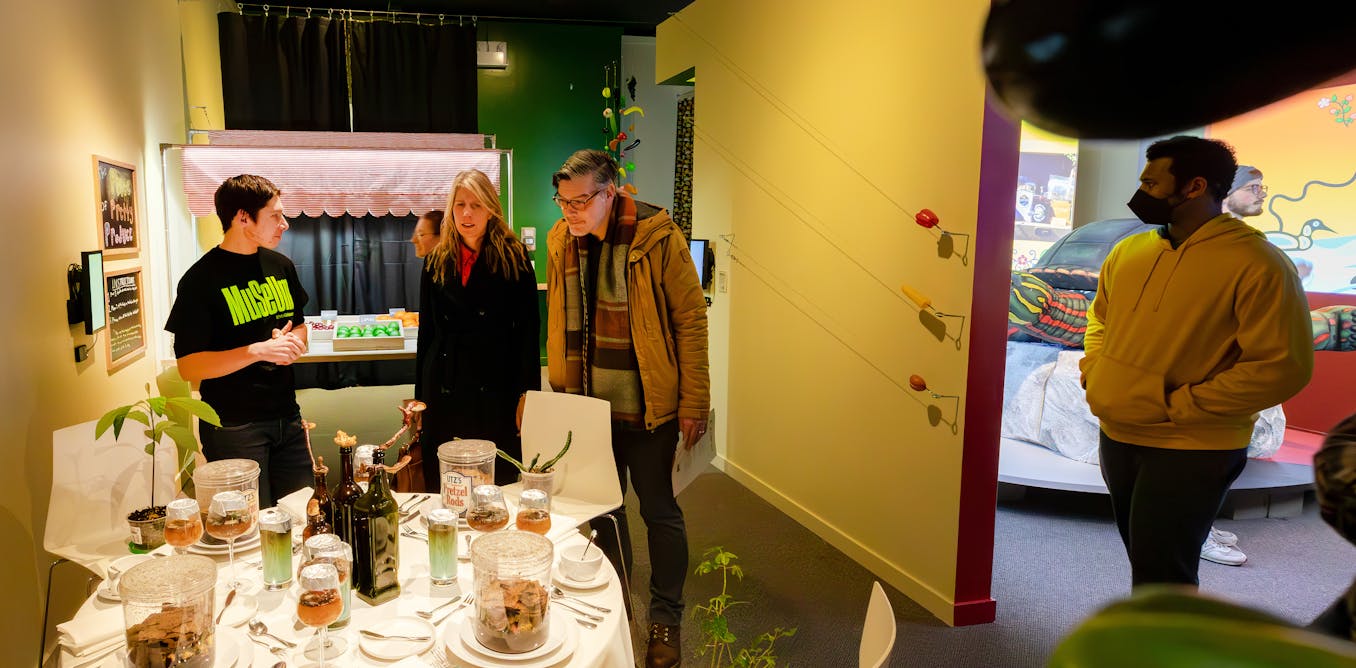Sometimes when I read the newspapers, I think that going to a restaurant and leaving without paying has become something of an epidemic. My research into lying has taught me that the psychology behind acts of deception is often deeply complex.
Let me start with a confession. I was guilty of dine and dash a very long time ago before it had a catchy name. I was in a group that hung about a chip shop at the turn-of-the-road in north Belfast, a poor and troubled area. I had a friend who wanted to go to the Wimpey bar in town, I told him that I hadn’t any money. I can remember his words “what do you need money for?” He passed me the menu. “We’re having doubles,” he said, and for the next half an hour he was a big shot.
His blase attitude seems reminiscent of a serial dine and dash married couple recently in the news after they were caught on CCTV, in an Italian restaurant in Swansea. They sat there, not a care in the world. Well not at the time anyway, but maybe now, having been sentenced to prison for their repeat offending.
They dined on T-bone steaks, a Chinese takeaway and three-course banquets in eateries around south Wales.
We can’t speculate on their specific motivations but we do know that personality can play an important role in deception.
My friend, for example, had a low tolerance for boredom and was a born risk taker. He got enormous pleasure from deceit which involved some jeopardy. It is known as duping delight. He turned out to have little empathy for others and was an expert liar. There was a theatricality about his performance. He wanted me and others to admire his panache – behaviours that may be redolent of what psychologists call the dark triad of personality characteristics, non-clinical psychopathy, narcissism and Machiavellianism.
Duping delight is intensified when you can see the face of your victim and when you are accompanied by friends who know what’s going on. Shoplifting, by comparison, is usually a much more solitary activity with less immediacy in terms of feedback. Dining and dashing maximises the thrill.
Back in that Belfast Wimpey’s, my friend and I had a double cheeseburger each and two cokes. I had no idea how we were going to pay.
hedgehog94/Shutterstock
When we finished, he asked for the bill and told me to go with him to the toilet. He had lifted a waitress’s pad the previous week and he wrote out a bill for two coffees. “You hand it over at the checkout,” my friend commanded. The lady at the checkout said that she’d seen us eating burgers but he denied it. “I wouldn’t eat the food in here if you paid me, I wouldn’t feed it to my dog.” He tossed a few coppers for the coffees onto her little counter.
But there are potentially other powerful psychological factors at work here. When people feel looked down upon or discriminated against, this often sets up a state of frustration and there can be this desire to kick back. This doesn’t have to be aimed at the people directly responsible for the problem though. It is also psychologically rewarding to lash out at similar but accessible individuals, and this can be much more rewarding than hitting out at distant, abstract figures, or the system itself.
My friend laughed about it all the way home but he justified it to himself: “Did you see that look the waitress gave us when we walked in? She was thinking to herself, these two lads are from a really rough bit of town, I bet they can’t afford to eat in here.” He had got his revenge.
There’s also the desire to act big in this competitive society of ours; to be a somebody. Conspicuous consumption of goods (even meals in Wimpey) is a way of signalling status and of repairing and bolstering feelings of status when they are threatened.
Self-construction is an important driver of behaviour in competitive societies. People may also get some satisfaction from projecting a certain fake personality. The Italian restaurant manager later said she couldn’t believe that such “innocent looking” customers could do something like that.
The after taste
Dishonest behaviour is often a game of sorts. In this case the victims, the restaurant staff, are the losers. They have spoken of how the experience undermined their trust in others. Deception often affects how the victims think and feel about themselves, and makes them less sure of their judgment.
But how do the fraudsters feel afterwards? For my new book on lying I explored how liars, including fraudsters, justify their actions to make themselves feel better. Justifications follow the act but can shape the sub-culture because people share those justifications with others.
In 1968 sociologists Marvin Scott and Stanford Lyman identified different types of justifications used in various social contexts. These justifications include things like denying that there are any serious consequences of the action (the restaurant can take the hit).
Sometimes the justification is that the behaviour is in the interest of another person to whom the perpetrator owes some type of allegiance. Perhaps, like my friend saying that he was giving me a treat on a Saturday afternoon in rainy Belfast, or the married couple treating their kids to a meal, before running off.
Dine and dash undoubtedly has a long history. But CCTV may have changed the game. Perhaps watching the fall of the greedy will make some people think again, and keep most of us outside the restaurant looking in, still dreaming of that pricey T-bone steak.

The post “The fascinating psychology behind ‘dine and dash’ and why it’s about so much more than a free meal” by Geoff Beattie, Professor of Psychology, Edge Hill University was published on 06/04/2024 by theconversation.com





































